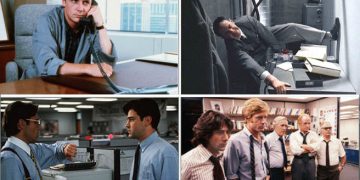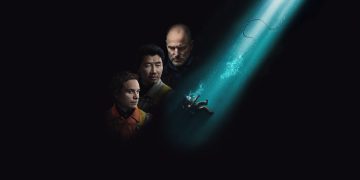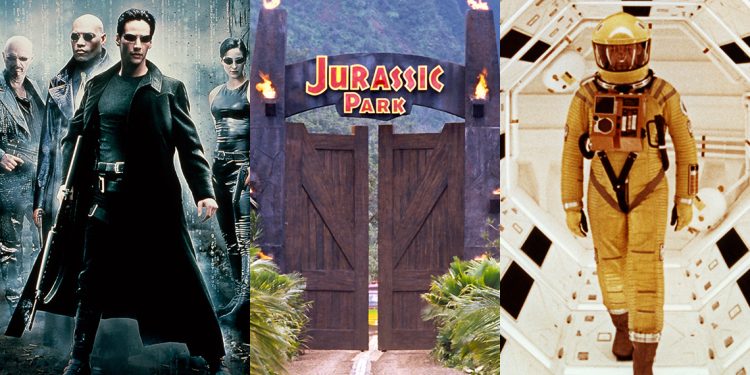Science fiction (sci-fi) has captured the imaginations of moviegoers for generations. From futuristic spaceships to dystopian landscapes, sci-fi films have constantly pushed the boundaries of creativity, visual effects, and storytelling. But which films stand the test of time as the greatest sci-fi movies of all time? In this article, we will explore the most influential and groundbreaking sci-fi films, their cultural impact, and how they shaped the genre we love today.
1. The Evolution of Sci-Fi Cinema
The sci-fi genre has a long and storied history, evolving from humble beginnings into a powerhouse in cinema. From early experimental films to today’s CGI-heavy blockbusters, the genre has seen a dramatic shift, fueled by technological advancements and evolving audience tastes.
1.1 Early Sci-Fi Films
The early days of sci-fi cinema were filled with experimental narratives and limited special effects. Films like Metropolis (1927) set the groundwork for what was to come, with towering futuristic cities and themes of class struggles. Early films like these were a glimpse into the genre’s potential for exploring society’s most pressing questions through speculative fiction.

These films, while simple by today’s standards, introduced concepts of alien invasions, space travel, and the relationship between technology and humanity—all of which would become staples of the genre.
1.2 The Rise of Blockbusters
The 1980s and 1990s marked a golden age for sci-fi films, where big-budget productions with cutting-edge special effects became the norm. Movies like Star Wars: The Empire Strikes Back (1980) and Terminator 2: Judgment Day (1991) took audiences to new heights with their larger-than-life action sequences, futuristic settings, and mind-bending plots.
The shift from low-budget experimentation to blockbuster filmmaking allowed sci-fi to reach a mainstream audience. These films demonstrated how the genre could tackle deep philosophical questions while delivering high-octane action, special effects, and compelling stories.
2. Iconic Sci-Fi Movies That Defined the Genre
Now, let’s explore the sci-fi films that not only stood out in their time but also changed the landscape of cinema. These iconic films have influenced countless other films and continue to be revered by fans and filmmakers alike.
2.1 2001: A Space Odyssey (1968)
No list of sci-fi films would be complete without Stanley Kubrick’s 2001: A Space Odyssey. Released in 1968, this film was a technical marvel that pushed the boundaries of both visual effects and narrative structure. The film’s exploration of humanity’s place in the universe, artificial intelligence, and the unknowns of space set a precedent for how sci-fi could be used to tackle deep existential questions.

With groundbreaking visual effects, a minimalist narrative, and the unforgettable HAL 9000, 2001 remains a masterpiece of the genre. It continues to be celebrated as a film that changed both the way sci-fi films were made and how we view science fiction as a medium for intellectual exploration.
2.2 Star Wars (1977)
When Star Wars hit theaters in 1977, it wasn’t just a movie—it was a cultural phenomenon. Directed by George Lucas, Star Wars introduced audiences to a universe of space battles, intergalactic politics, and iconic characters like Luke Skywalker, Darth Vader, and Princess Leia. The film revolutionized the use of special effects, taking them to a new level and influencing nearly every action film that followed.

Beyond the visual spectacle, Star Wars also injected a sense of mythology and epic storytelling into the sci-fi genre, blending futuristic technology with ancient themes of good versus evil. It continues to be a central influence on both sci-fi films and pop culture as a whole.
2.3 Blade Runner (1982)
Ridley Scott’s Blade Runner has become one of the defining films of cyberpunk and dystopian science fiction. The film, based on Philip K. Dick’s novel Do Androids Dream of Electric Sheep?, explores the blurred line between humanity and artificial intelligence. With its hauntingly atmospheric visuals and philosophical themes about identity, memory, and mortality, Blade Runner set a new standard for visually striking sci-fi.
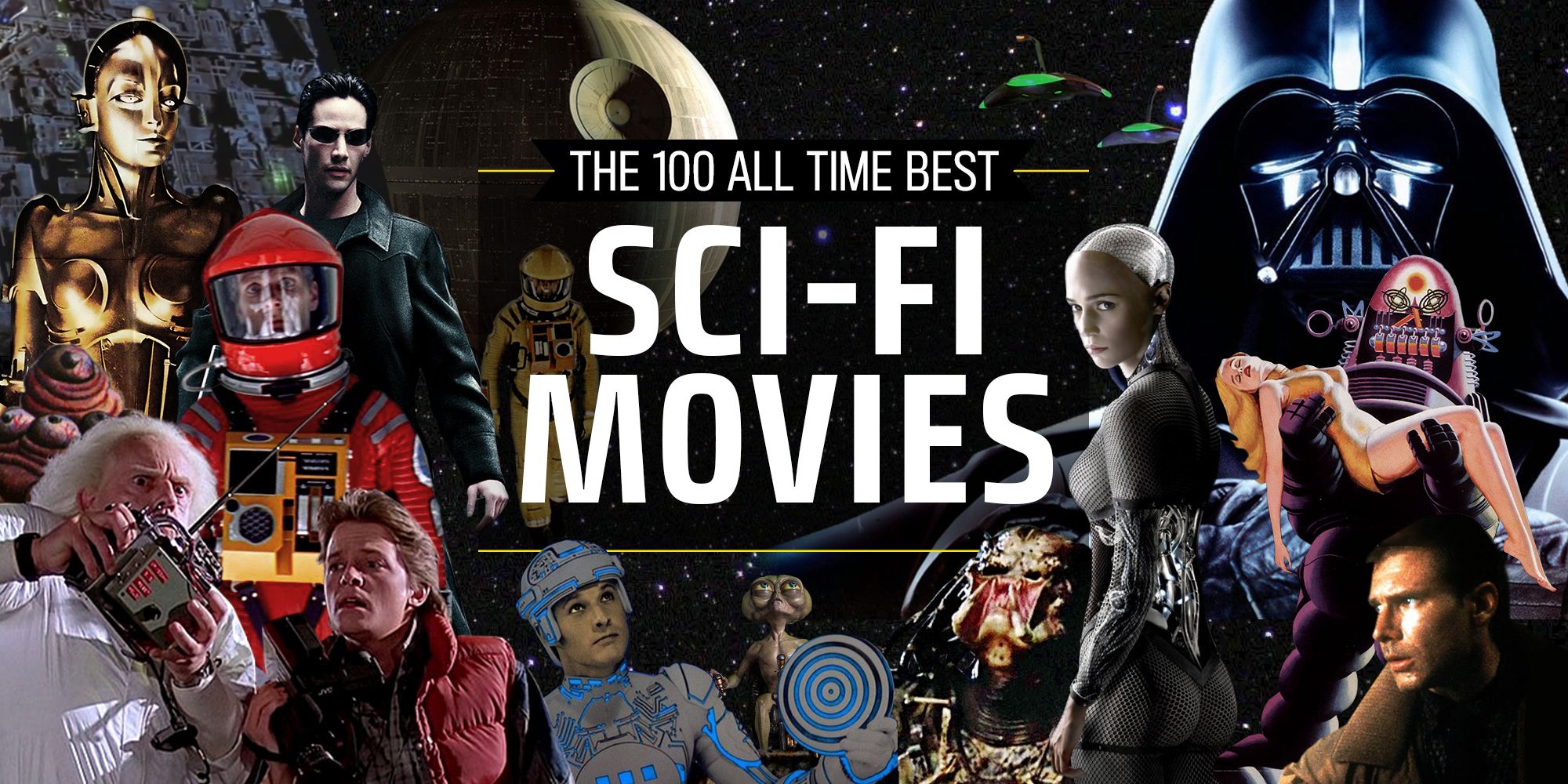
The film’s influence can still be felt in countless works of sci-fi cinema, and its aesthetic—both dark and futuristic—has been widely imitated in films like The Matrix and Ghost in the Shell.
3. The Technological Innovation of Sci-Fi Movies
One of the most exciting aspects of sci-fi is its constant push for technological innovation. Sci-fi films have been at the forefront of new filmmaking techniques, from practical effects to cutting-edge CGI and virtual reality. Let’s look at how technology has shaped this genre and continue to push its boundaries.
3.1 Special Effects in Sci-Fi
When it comes to visual effects, sci-fi films have often been the leaders in innovation. From the use of miniatures and practical effects in the early sci-fi classics to the computer-generated imagery (CGI) used in modern blockbusters, sci-fi films have paved the way for what is possible on the big screen.
Films like The Matrix (1999) and Jurassic Park (1993) revolutionized the way audiences experience action, with groundbreaking CGI dinosaurs and bullet-dodging sequences. These films set the stage for future advancements, allowing directors to visualize anything they could dream up.
3.2 The Role of CGI and Virtual Reality
The use of CGI has allowed sci-fi films to present complex visual effects that were once impossible. Films like Avatar (2009) pushed the boundaries of CGI, creating an entirely new world with seamless integration between live-action and computer-generated environments. The advent of virtual reality (VR) and motion capture technology also enabled filmmakers to bring virtual worlds to life in stunning detail.
As these technologies continue to evolve, we can expect sci-fi films to become even more immersive, transporting audiences to otherworldly places and experiences. The future of sci-fi looks incredibly bright, with filmmakers constantly experimenting with new techniques to keep us on the edge of our seats.
This concludes the first half of our exploration into the greatest sci-fi movies. Stay tuned for the second half, where we’ll dive deeper into the thematic depth of sci-fi, its impact on pop culture, and the lasting legacy of these groundbreaking films. Whether you’re a long-time sci-fi fan or a newcomer to the genre, these films are essential viewing for anyone interested in the evolution of cinema.
4. Thematic Depth and Social Commentary in Sci-Fi
One of the reasons sci-fi films have remained so relevant over time is their ability to address important social, philosophical, and political issues. These films often serve as a mirror to society, examining our fears, desires, and values through futuristic or speculative settings.
4.1 Exploration of Humanity
Many sci-fi films delve into what it means to be human. These films explore questions of identity, consciousness, and the essence of humanity. Movies like Blade Runner (1982) and The Matrix (1999) challenge our understanding of what it means to be alive, exploring themes of artificial intelligence, memory, and free will.
By pushing these philosophical boundaries, sci-fi films force us to reflect on our current reality. What makes us human? Is it our memories, our emotions, or our capacity to change the world around us? Sci-fi offers a unique platform to examine these questions through characters and worlds that exist beyond our own.

4.2 The Dystopian Vision
Another common theme in sci-fi films is the dystopian future, where society has crumbled under the weight of corruption, environmental collapse, or oppressive technology. Films like Children of Men (2006) and The Hunger Games (2012) offer grim visions of what might happen if we continue down certain societal paths.
These dystopian narratives often serve as warnings, urging us to examine the direction in which our world is headed. They explore themes such as government control, climate change, and social inequality, offering a critical lens through which to view current global issues.
5. Sci-Fi Subgenres and Their Influence
While all sci-fi films share a love of the unknown, the genre has evolved into multiple subgenres, each with its own unique style, themes, and fanbase. Let’s dive into a few of the most influential sci-fi subgenres and their impact on both cinema and pop culture.
5.1 Cyberpunk and the Digital Age
Cyberpunk has become one of the most iconic subgenres in sci-fi, blending futuristic technology with dystopian, urban settings. Films like The Matrix (1999) and Ghost in the Shell (1995) explore themes of corporate control, artificial intelligence, and the merging of man and machine.
The cyberpunk aesthetic, with its neon lights, gritty cities, and tech-driven futures, has had a lasting influence on both sci-fi films and popular culture. It imagines a world where the boundaries between humanity and technology blur, and it asks critical questions about the ethical implications of technological advancement.
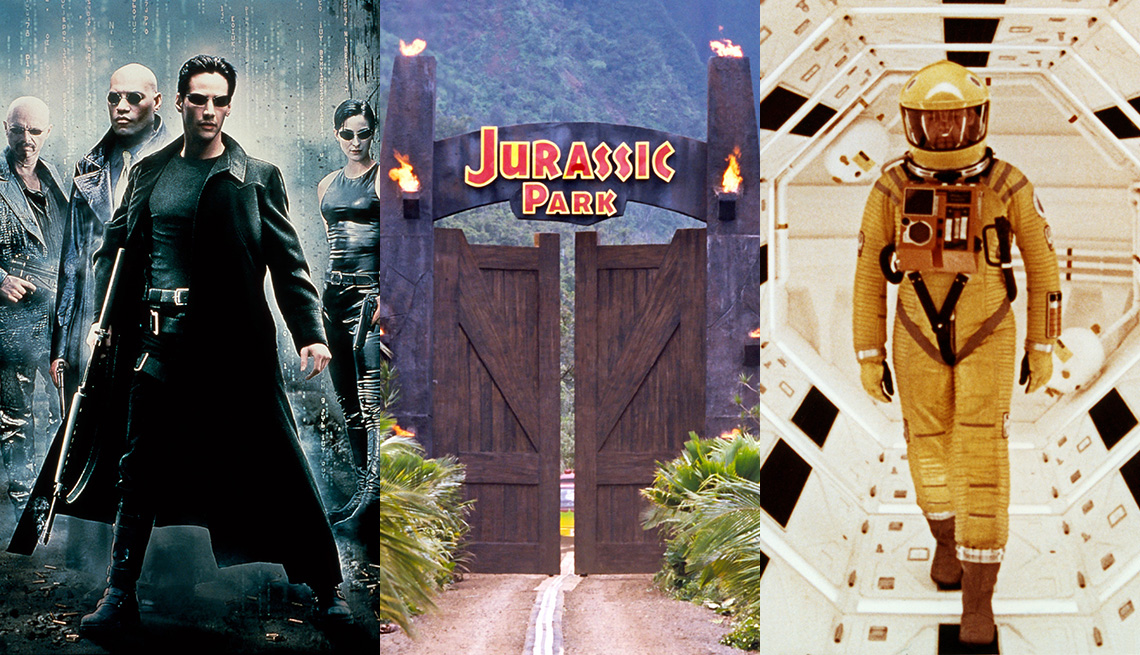
5.2 Space Operas and Epic Worlds
Another subgenre that has had a massive impact on both the sci-fi genre and pop culture is the space opera. These films, including Star Wars (1977) and Star Trek (1979), take place in vast intergalactic settings, often featuring grand battles, interplanetary politics, and the struggle between good and evil.
Space operas are known for their larger-than-life characters, epic storylines, and stunning visual effects. These films helped bring sci-fi into the mainstream, creating entire universes that fans could get lost in. They also influenced everything from TV series to video games, making them a cornerstone of sci-fi entertainment.
6. The Impact of Sci-Fi on Pop Culture
Sci-fi films haven’t just changed the way we watch movies—they’ve influenced the very fabric of popular culture. From fashion to technology, sci-fi has shaped the way we view the future and the possibilities it holds.
6.1 Sci-Fi’s Impact on Technology
It’s no secret that many technological advances we use today were inspired by sci-fi films. Films like Star Trek predicted the communicator, which later became the cell phone, and 2001: A Space Odyssey introduced the concept of voice-activated computers, which are now a reality in devices like Siri and Alexa.
As technology continues to evolve, it’s exciting to think about how sci-fi might once again predict the future. With advancements in AI, virtual reality, and space travel, it’s only a matter of time before sci-fi films inspire the next wave of real-world innovation.

6.2 Sci-Fi in Other Media
The influence of sci-fi extends far beyond just films. Television shows, video games, and literature have all embraced the genre, using it to explore complex themes and create immersive worlds. Shows like Black Mirror (2011) and Stranger Things (2016) bring elements of sci-fi to the small screen, often exploring the darker side of technology and human nature.
In the world of video games, titles like Mass Effect and The Elder Scrolls series have created rich, sci-fi universes that allow players to explore alien planets, engage in epic space battles, and experience complex narratives. The intersection of sci-fi and gaming has been especially influential in shaping how we view interactive storytelling.
7. Conclusion: Sci-Fi Movies That Changed Cinema Forever
The greatest sci-fi films of all time have had a lasting impact on both cinema and culture. These films, whether they explore the far reaches of space, the depths of human emotion, or the consequences of technology, continue to inspire audiences and filmmakers alike. From the philosophical musings of 2001: A Space Odyssey to the epic battles of Star Wars, these films have redefined what cinema can achieve.
The beauty of sci-fi is that it’s always evolving. As technology advances and new creative minds enter the genre, we can expect to see more groundbreaking films that continue to push the limits of imagination and innovation. Whether you’re a long-time fan of sci-fi cinema or just beginning to explore the genre, the greatest sci-fi films will always have something new to offer.
FAQs
What is the greatest sci-fi movie of all time?
While opinions vary, 2001: A Space Odyssey and Star Wars are often cited as two of the greatest sci-fi films ever made due to their cultural significance, groundbreaking visuals, and thought-provoking themes.
How did sci-fi movies influence modern technology?
Many sci-fi movies predicted technologies that we now use in real life, such as cell phones, voice recognition, and artificial intelligence. These films often serve as a roadmap for technological innovation, inspiring real-world advancements.
What are the key themes of sci-fi films?
Sci-fi films often explore themes such as artificial intelligence, humanity’s future, space exploration, technology, and dystopian futures, challenging audiences to think about society’s path forward.
With their impact on technology, social commentary, and cultural influence, sci-fi movies have shaped not only cinema but also the way we see the world around us. From classic tales of space exploration to dystopian warnings, sci-fi films have inspired generations of fans, and they will continue to influence the future of cinema for years to come.

